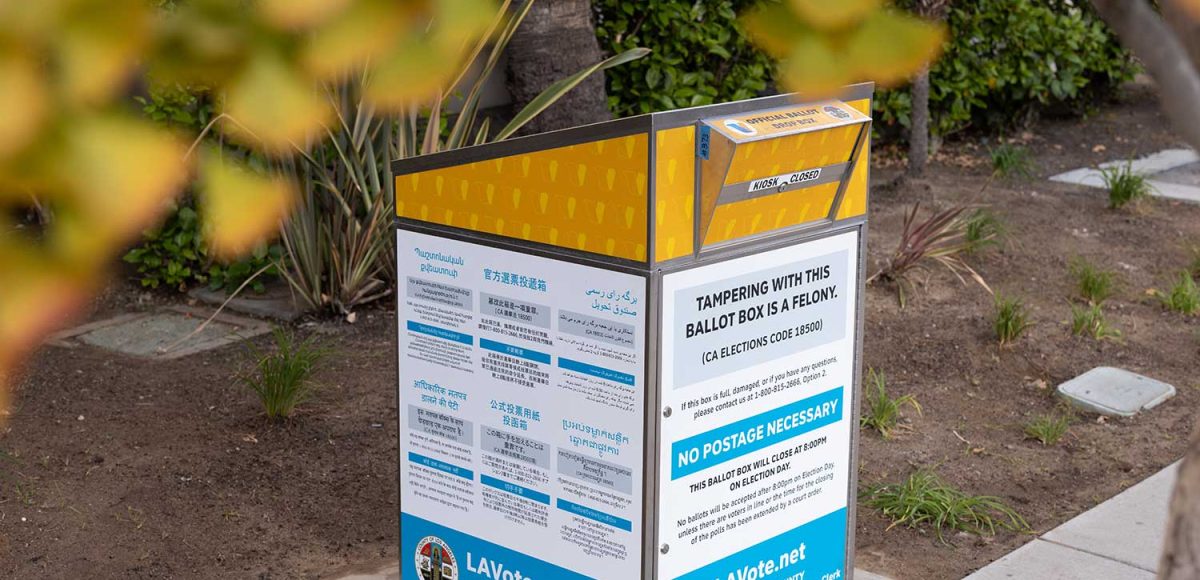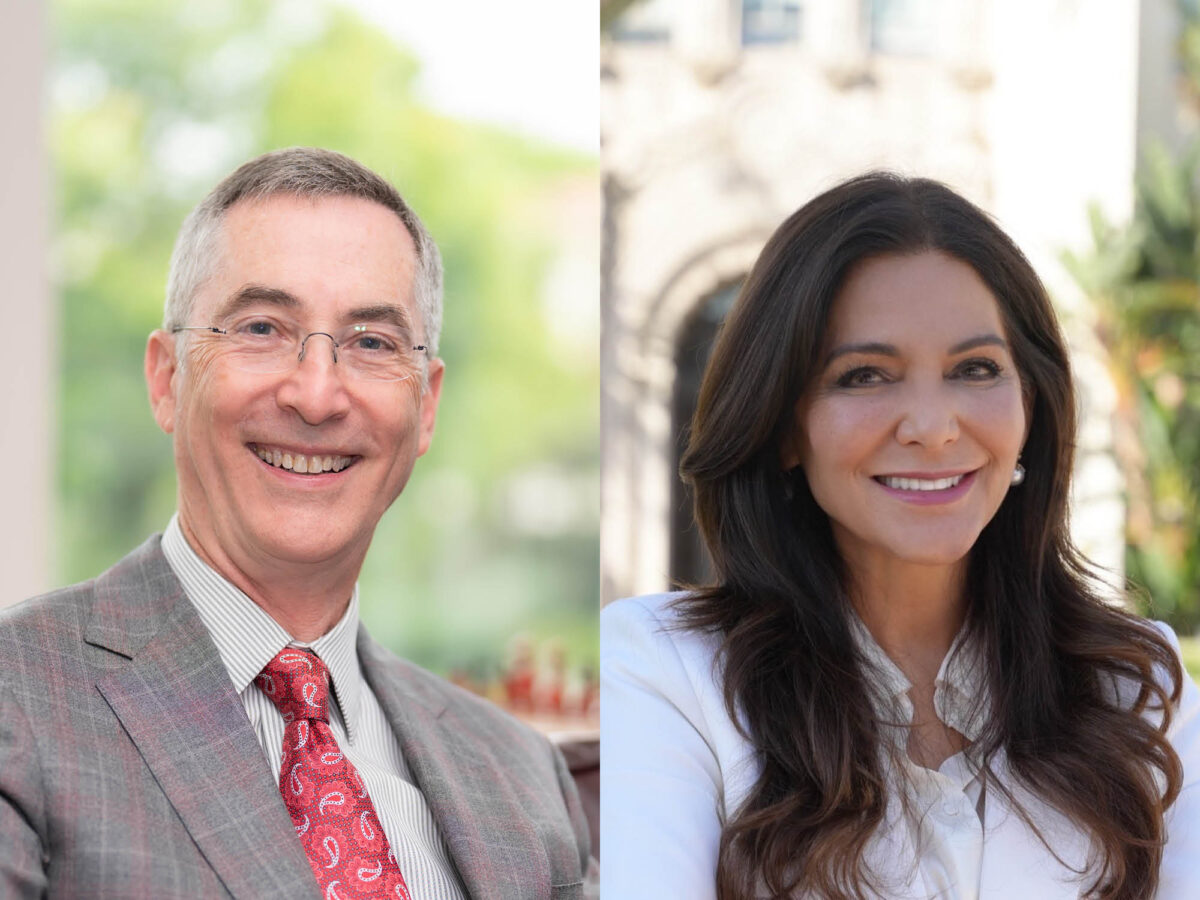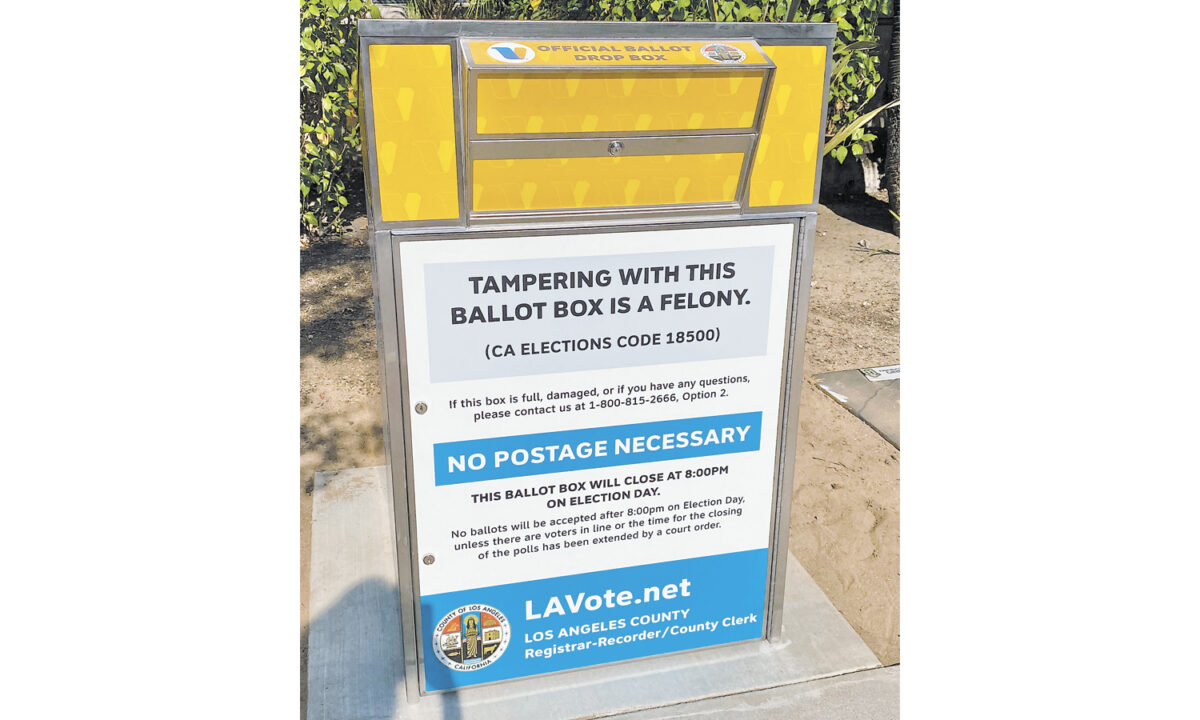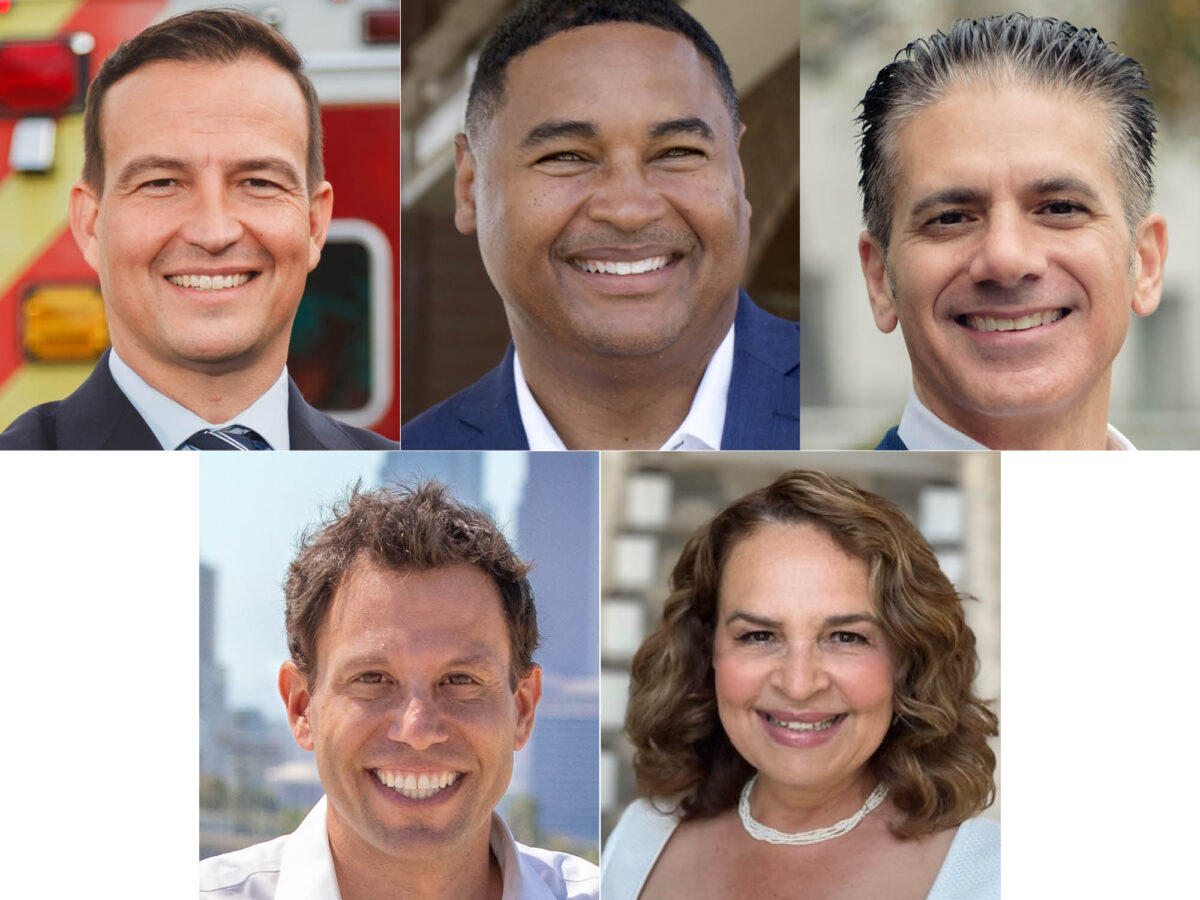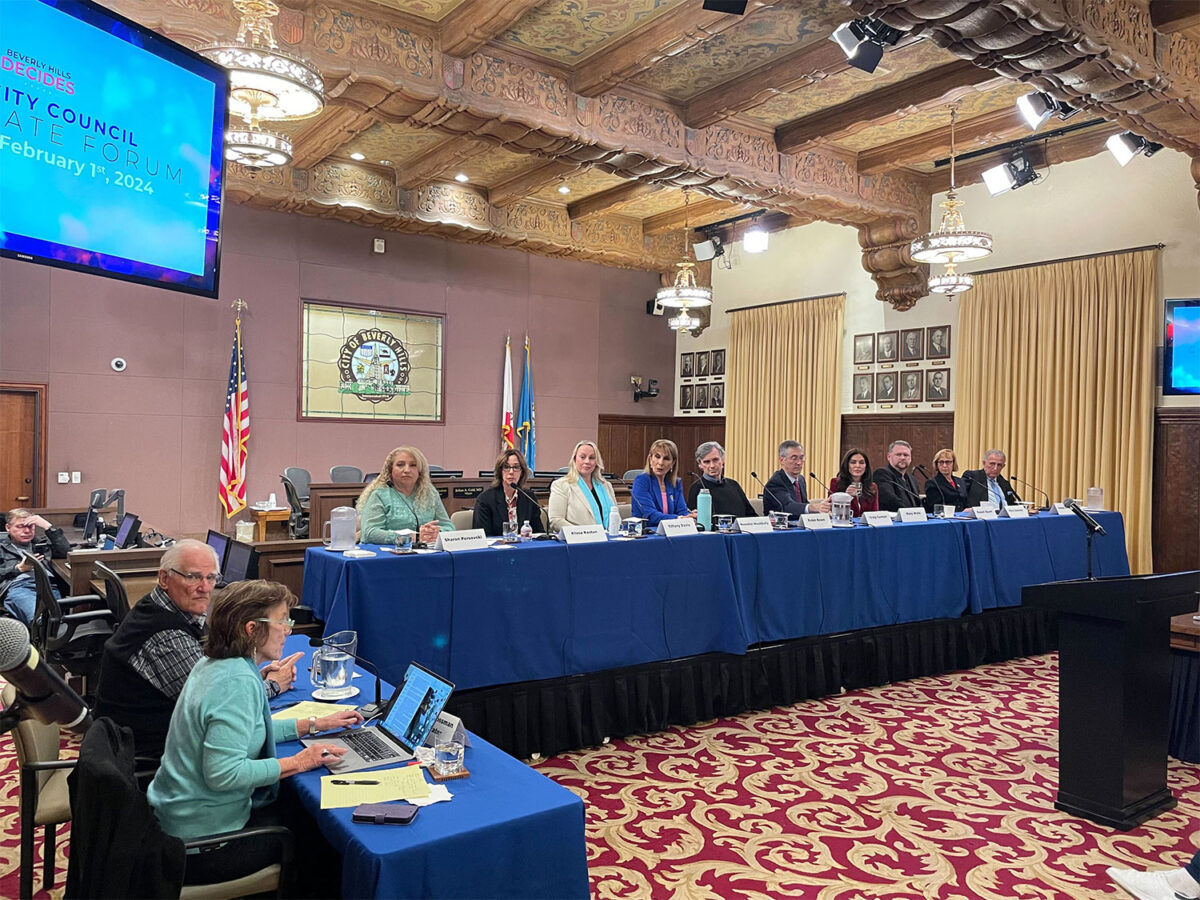On Tuesday, March 5, residents of Beverly Hills will take to the ballot box to make their voices heard in the Presidential Primary Election.
While much of the local spotlight has been focused on the Beverly Hills City Council race, residents will also have important decisions to make on who they want to represent them in the U.S. Senate, District Attorney’s Office and State Assembly. And there’s also a state ballot measure to fund mental health treatment to keep in mind.
In-person vote centers are currently open from 10 a.m. to 7 p.m. at Beverly Hills Public Library, TreePeople’s conference room in Coldwater Canyon Park and Tom Bradley International Hall. On Saturday, centers will also open at All Saints Episcopal Church, LA Cienega Tennis Center, Horace Mann Elementary School, Sunrise of Beverly Hills and Roxbury Memorial Park Clubhouse.
Here’s what residents need to know about the key regional and state races on the ballot:
US Senate:
Three Democratic members of Congress and the Republican ex-Dodger Steve Garvey lead the race to fill the seat of former Senator Dianne Feinstein, who died in September 2023. The top two-vote getters in the primary election will proceed to a November runoff regardless of party preference.
Polls have consistently shown Rep. Adam Schiff (D-Burbank) as the clear frontrunner with around a quarter of likely voters’ support. The Los Angeles representative rose to national preeminence in 2020 as he led the House effort to impeach former President Donald Trump.
Rep. Katie Porter (D-Irvine) and Garvey are in a battle for second place, but polls have different conclusions over who holds the edge. A mid-February Emerson College poll found that Garvey had a 6% lead over Porter, however a mid-February Public Policy Institute of California poll concluded that the pair were virtually tied.
Rep. Barbara Lee (D-Oakland) is consistently polling in fourth place with 10% or less of the vote. The remaining 24 candidates in the race—including Republican attorney Eric Early, Republican businessman James Bradley and Democratic TV reporter Christina Pascucci—all trail behind with 4% or less of the vote.
The three leading Democratic candidates share similar campaign priorities like affordable housing, healthcare, the environment, gun safety and immigration reform. Lee is the most progressive candidate and has differentiated herself from her fellow Democrats by backing an immediate ceasefire in Gaza and a $50 minimum wage.
Garvey embraces many Republican policies and is calling for an audit of all spending on homelessness, a crackdown on the selling of street drugs and tighter border security. However, he also supports reproductive rights and clean energy.
Schiff is leading the fundraising, having collected more than $31.4 million in campaign contributions, according to FEC filings. He is followed by Porter with $28 million, Lee with $9 million and Garvey with $2.1 million.
District Attorney Race:
In perhaps the most unpredictable race on the ballot, 10 challengers are seeking to unseat incumbent District Attorney George Gascón. While a candidate can win in the primary if they clinch a majority of the votes, this crowded race is poised to proceed to a November runoff between the top two vote-getters.
Gascón rose to power in 2020 on a platform of reducing incarceration rates and offering a more humane approach to criminal justice. On his first day in office, he introduced a sweeping series of reforms that ended most sentencing enhancements, the practice of trying juveniles as adults and the use of cash bail for most misdemeanors and nonviolent felonies.
The challengers say these policies as well as Gascón’s blanket refusal to prosecute many misdemeanors—including trespassing, disturbing the peace, driving with no license, making criminal threats, drug possession, drinking in publi and resisting arrest—are to blame for rising crime rates.
In late January, the California Elections and Policy Poll found that 15% of likely voters favor Gascón, 21% favor challengers and the majority of voters were undecided.
Out of the challengers, Deputy District Attorney Jonathan Hatami held 8% of the vote; former U.S. Assistant Attorney General Nathan Hochman held 4%; and Assistant U.S. Attorney Jeff Chemerinsky, Superior Court Judge Craig Mitchell and Deputy District Attorney Maria Ramirez each held 2%. The remaining seven candidates each held less than 1% of the vote.
Hatami is known for winning convictions against the parents who tortured and murdered Gabriel Fernandez and Anthony Avalos. Hochman ran for California Attorney General as a Republican candidate in 2022 and is now running as an independent.
Jeff Chemerinsky is the most progressive of all the challengers and the son of famous legal scholar and UC Berkeley Law School Dean Erwin Chemerinsky.
When it comes to fundraising, Hochman is by far in the lead, having collected a whopping $2.8 million. He is followed by Chemerinsky with $1 million, Hatami with $780,000 and Deputy District Attorney Eric Sidall with $470,000. Gascón has raised the fifth most out of the 12 candidates with $435,000.
State Assembly District 51:
Democratic incumbent Rick Chavez Zbur, who was first elected in 2022, faces two Republican challengers in the race to represent Beverly Hills, West Hollywood, Hollywood and Santa Monica. Zbur is the former Executive Director of Equality California, the nation’s largest statewide LGBTQ+ civil rights organization.
One of his challengers, Shiva Bagheri, is a Beverly Hills resident. Bagheri owns local business Shiva’s Dance & Fitness and started the Beverly Hills Freedom Rally in 2020 to express support for then-President Donald Trump. Entrepreneur Stephan Hohil is also seeking to unseat Zbur.
The top two vote-getters will advance to the November ballot.
Prop. 1:
Prop 1 is a $6.4 billion bond measure spearheaded by Governor Newsom to fund mental health treatment and supportive housing for those experiencing homelessness.
If passed, it would direct $4.4 billion to create 10,000 mental health beds and $2 billion for homeless housing projects, half of which would be reserved for veterans with mental illness or substance use issues.
Supporters include National Alliance on Mental Illness California, California Teachers Association and California Chamber of Commerce, who believe it will help address the state’s dire shortage of mental health treatment beds and a root cause of homelessness.
Detractors include Disability Rights California, ACLU California Action and the League of Women Voters of California, who fear the housing requirements of the bill will result in cuts for existing mental health services and also oppose funding treatment facilities where people with mental illness could be subject to involuntary holds.
A mid-February Public Policy Institute of California Poll found that 59% of likely voters support Prop. 1. The measure needs a simple majority in the March 5 primary to pass.



